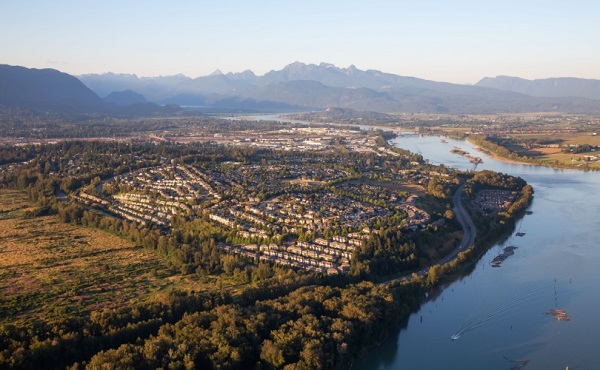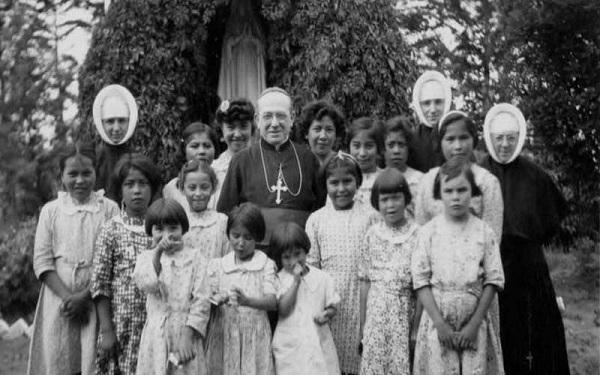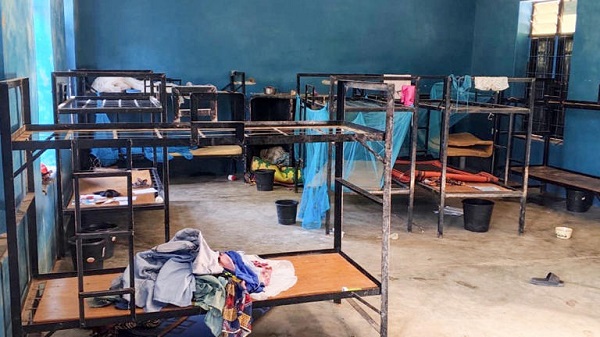Indigenous
Canadian mayor promises to ‘vigorously defend’ property owners against aboriginal land grab

From LifeSiteNews
Port Coquitlam, British Columbia, is fighting a Kwikwetlem First Nation’s claim that, if successful, would see aboriginals in essence be given large swaths of land owned by the city.
A Canadian mayor said he will “vigorously defend” the property rights of residents in light of a recent court ruling that gave a portion of a municipality to aboriginals via a title claim they won in court.
Mayor Brad West of Port Coquitlam, British Columbia, vowed to residents, “We have, and will continue to, vigorously defend public ownership of these lands, along with private property rights in our jurisdiction.”
“We will ensure the public is kept informed,” he promised in a post on X.
Port Coquitlam is fighting a Kwikwetlem First Nation’s claim made in 2016 that, if successful, would see the aboriginals in essence be given large swaths of land owned by the city.
The city said that at this time that there are “no civil claims initiated by any First Nations involving private property within the City of Port Coquitlam.”
The city promised in a statement that if the changes are made, it will notify residents immediately.
“While the City recognizes public concern resulting from recent media coverage of the Cowichan/Richmond case, it is important to note that no private lands within Port Coquitlam are currently the subject of litigation,” the statement read.
West’s comments come in light of a recent court ruling in British Columbia affecting property rights, Cowichan Tribes v. Canada (Attorney General), which saw the provincial Supreme Court rule that decades-long land grants by the government were not valid and violated a land title held by the tribes.
The ruling included large parts of Richmond, British Columbia, which is in the Vancouver area, essentially given to local tribes.
There are many other similar legal battles taking place in British Columbia, which, unlike the rest of Canada, has no official treaties in place with local Indigenous peoples but only agreements without legal clarity.
As reported by LifeSiteNews, John Carpay, founder and president of the Justice Centre for Constitutional Freedoms (JCCF), noted the court “told the people (of various ethnicities) who live in some parts of Richmond, B.C., that the money they paid for their own properties does not guarantee them the right to own and enjoy their own homes.”
Carpay noted that “the fact that aboriginal ethnic groups arrived in Canada earlier than other ethnic groups should be completely irrelevant when it comes to the application of the law.”
“Nobody disputes that different aboriginal tribes lived in this land before the arrival of Europeans, Africans, and Asians. The question is: Why should this fact matter?” he noted.
Carpay observed that when officials and courts apply the “law” differently to come after “Canadians because of their race, ancestry, ethnicity, or descent,” the predictable and inevitable outcome “is strife, resentment, and fear.”
Indigenous
Indigenous activist wins landmark court ruling for financial transparency

Indigenous activist Hans McCarthy won a landmark court ruling that reaffirms the right of individual First Nations band members to access documents regarding their community’s money.
“The federal government and First Nations leaders have a responsibility to be transparent about what is happening with our people’s money,” said Hans McCarthy, a member of Frog Lake First Nation. “This court victory is important because it will help my community, but it will also help all bands across the country fighting for more financial transparency.”
McCarthy partnered with the CTF to launch a court application against the federal government to compel Ottawa to release band council resolutions regarding Frog Lake First Nation’s trust fund.
The trust fund, which held revenues from natural resources located on band lands, totaled about $102 million in 2013, according to documents released through the First Nations Financial Transparency Act. Less than $9 million remained by 2024.
The Federal Court has now ordered Indigenous Services Canada to provide the full documents to McCarthy within 30 days, subject only to limited redactions.
“This decision sets an important legal precedent for financial transparency,” said Devin Drover, CTF General Counsel. “The court made it clear that neither Ottawa nor band leadership can keep band members in the dark about their community’s money.”
McCarthy originally partnered with the CTF to file federal access-to-information requests to acquire band council resolutions regarding the fund. Indigenous Services Canada refused to release the documents.
In his court application, McCarthy successfully argued that Ottawa has a duty to disclose these records to band members who request them and that both the federal government and First Nation leaders must be transparent about band trust funds.
“This is a huge victory for financial transparency for First Nations communities,” said Gage Haubrich, CTF Prairie Director. “The victory in this court case sets a clear precedent: Band members have a right to know how their community’s money is being used.”
The court’s decision and timeline of events can be found here and here.
Business
The Payout Path For Indigenous Claims Is Now National Policy

From the Frontier Centre for Public Policy
By Tom Flanagan
Ottawa’s refusal to test Indigenous claims in court is fuelling a billion-dollar wave of settlements and legal copycats
First Nations led the charge. Now the Métis are catching up. Ottawa’s legal surrender strategy could make payouts the new national policy.
Indigenous class-action litigation seeking compensation for historical grievances began in earnest with claims related to Indian Residential Schools. The federal government eventually chose negotiation over litigation, settling for about $5-billion with “survivors.” Then–prime minister Stephen Harper hoped this would close the chapter, but it opened the floodgates instead. Class actions have followed ever since.
By 2023, the federal government had paid or committed $69.6-billion in 2023 dollars to settle these claims. What began with residential schools expanded into day schools, boarding homes, the “Sixties Scoop,” unsafe drinking water, and foster-care settlements.
Most involved status Indians. Métis claims had generally been unsuccessful—until now.
Download the Essay. (4 pages)
Tom Flanagan is professor emeritus of political science at the University of Calgary and a senior fellow of the Frontier Centre for Public Policy.
-

 Alberta1 day ago
Alberta1 day agoPremier Smith explains how private clinics will be introduced in Alberta
-

 Censorship Industrial Complex1 day ago
Censorship Industrial Complex1 day agoUK Government “Resist” Program Monitors Citizens’ Online Posts
-

 Bruce Dowbiggin2 days ago
Bruce Dowbiggin2 days agoElbows Down For The Not-So-Magnificent Seven: Canada’s Wilting NHL Septet
-

 Business1 day ago
Business1 day agoUS Supreme Court may end ‘emergency’ tariffs, but that won’t stop the President
-

 International1 day ago
International1 day ago“The Largest Funder of Al-Shabaab Is the Minnesota Taxpayer”
-

 International1 day ago
International1 day ago50 of the 315 students and 12 staff abducted from Catholic school in Nigeria last week have escaped
-

 Alberta1 day ago
Alberta1 day agoAlberta introducing dual practice health care model to increase options and shorten wait times while promising protection for publicly funded services
-

 espionage1 day ago
espionage1 day agoSoros family has been working with State Department for 50 years, WikiLeaks shows







